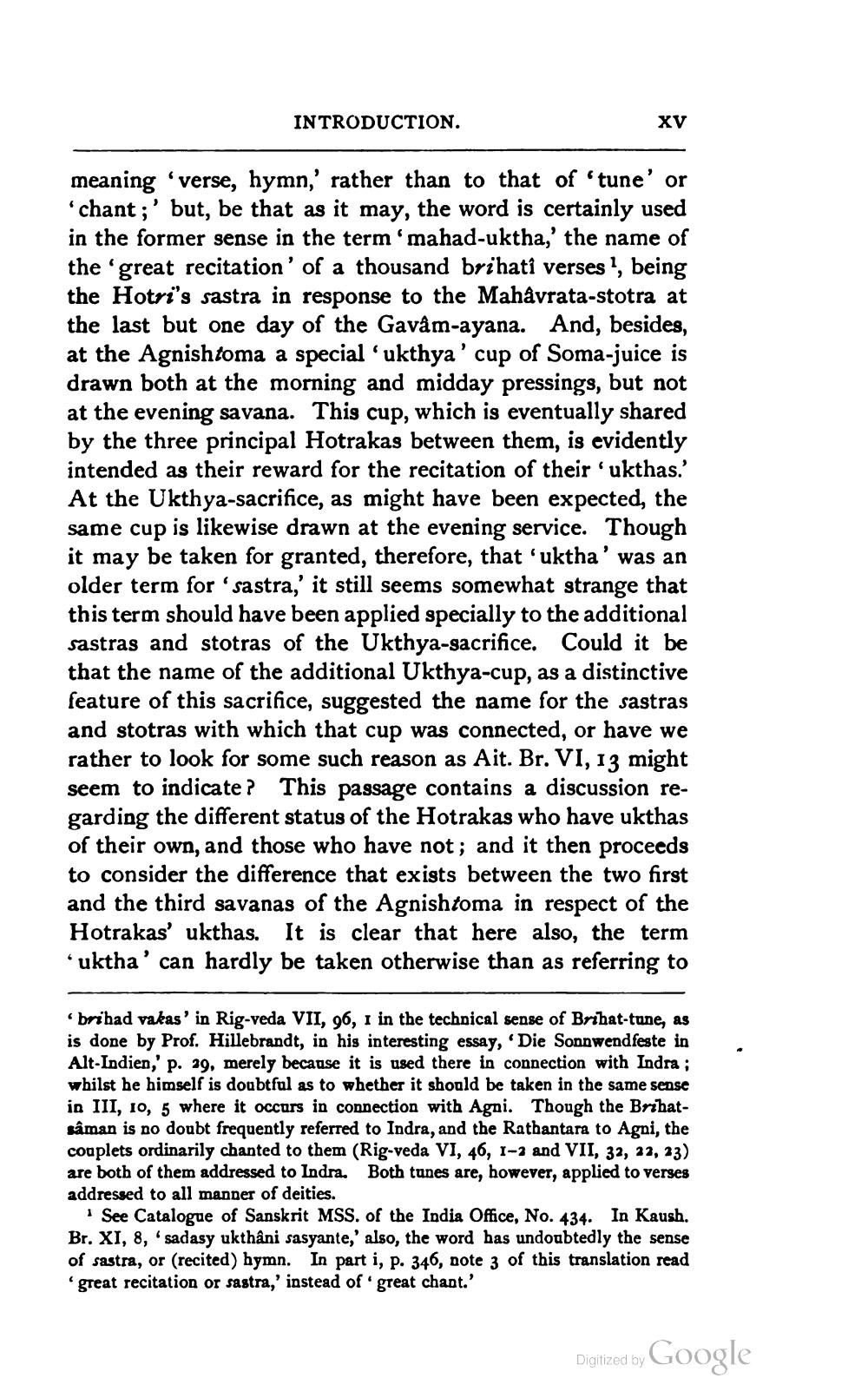________________
INTRODUCTION.
ху
meaning 'verse, hymn,' rather than to that of 'tune' or 'chant;' but, be that as it may, the word is certainly used in the former sense in the term 'mahad-uktha,' the name of the 'great recitation of a thousand brihati verses !, being the Hotri's sastra in response to the Mahavrata-stotra at the last but one day of the Gavâm-ayana. And, besides, at the Agnishtoma a special.ukthya' cup of Soma-juice is drawn both at the morning and midday pressings, but not at the evening savana. This cup, which is eventually shared by the three principal Hotrakas between them, is evidently intended as their reward for the recitation of their 'ukthas.' At the Ukthya-sacrifice, as might have been expected, the same cup is likewise drawn at the evening service. Though it may be taken for granted, therefore, that'uktha' was an older term for 'sastra,' it still seems somewhat strange that this term should have been applied specially to the additional sastras and stotras of the Ukthya-sacrifice. Could it be that the name of the additional Ukthya-cup, as a distinctive feature of this sacrifice, suggested the name for the sastras and stotras with which that cup was connected, or have we rather to look for some such reason as Ait. Br. VI, 13 might seem to indicate? This passage contains a discussion regarding the different status of the Hotrakas who have ukthas of their own, and those who have not; and it then proceeds to consider the difference that exists between the two first and the third savanas of the Agnishtoma in respect of the Hotrakas' ukthas. It is clear that here also, the term "uktha' can hardly be taken otherwise than as referring to
brihad vakas' in Rig-veda VII, 96, 1 in the technical sense of Bribat-tune, as is done by Prof. Hillebrandt, in his interesting essay, 'Die Sonnwendfeste in Alt-Indien,' p. 29, merely because it is used there in connection with Indra ; whilst he himself is doubtful as to whether it should be taken in the same sense in III, 10, 5 where it occurs in connection with Agni. Though the Bribatsaman is no doubt frequently referred to Indra, and the Rathantara to Agni, the couplets ordinarily chanted to them (Rig-veda VI, 46, 1-3 and VII, 32, 33, 23) are both of them addressed to Indra. Both tunes are, however, applied to verses addressed to all manner of deities.
See Catalogue of Sanskrit MSS. of the India Office, No. 434. In Kaush. Br. XI, 8, sadasy ukthâni sasyante,' also, the word has undoubtedly the sense of sastra, or (recited) hymn. In part i, p. 346, note 3 of this translation read 'great recitation or sastra,' instead of great chant.'
Digitized by Google




